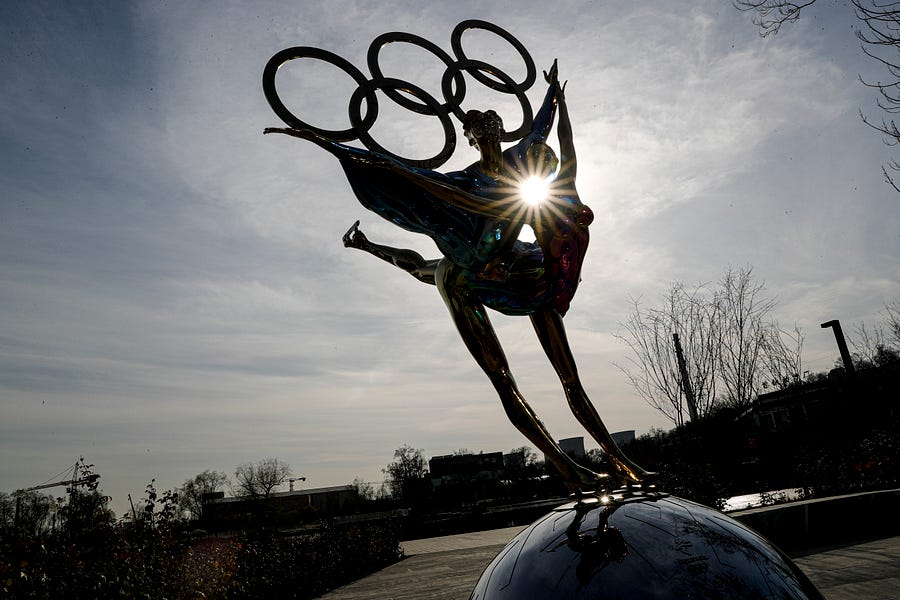On February 20, 2022, just two short years from now, Beijing will host the closing ceremonies for that year’s winter Olympics. Those ceremonies will serve as the denouement for a grand propaganda spectacle, one that the Chinese Communist Party will use to boost its domestic legitimacy and to boast of its unstoppable rise on the international scene. Or at least that’s what Chinese leader Xi Jinping hopes.
On the other hand, Xi may come to see his decision to bid for the 2022 games as a strategic misstep—one in which he unwittingly handed leverage to the free world. And that is precisely how the United States and likeminded countries should think about Beijing 2022. It is not every day that the CCP willingly provides others the means to pressure it over its human rights record.
There are good reasons for the United States and other like-minded countries to use that leverage, by credibly threatening to keep their elite athletes from competing on the sports world’s grandest stage. Foremost among them is the detention of up to 3 million Muslims in concentration camps—where they face torture, sexual violence, forced sterilization, and other horrors—for the simple crime of adhering to Islam. Life for Muslims is tough outside the camps as well, where initiatives include dispatching Han Chinese men to live in homes with, and share the beds of, Uighur women whose husbands have been indefinitely detained. And even as camp populations may be shrinking, the specter of forced labor has reared its ugly head across Xinjiang.
Human rights abuses in Xinjiang may be the most nakedly egregious, but China has a horrid record in every direction. Conditions in Tibetan areas of China are so repressive that nearly 160 Tibetans have self-immolated in protest over the last decade. In December, Wang Yi, a prominent Protestant pastor, was sentenced to nine years in prison for crimes including “inciting to subvert state power.” And too often, those who speak out end up paying with their lives. Most recently, Chinese police reprimanded Dr. Li Wenliang after he warned friends, in a private chat room, of a SARS-like illness in Wuhan. Authorities continued to conceal the outbreak, Dr. Li returned to work, and he ended up succumbing to the very virus about which he tried to raise an alarm.
Beijing is loath to change domestic policies at the behest of foreign governments, but that should not dissuade Washington and others from thinking big. The Trump administration should assemble an international coalition committed to skipping the 2022 Winter Games absent significant change in China. Such changes should include immediate closure of the concentration camps, an end to forced labor in Xinjiang, a halt to the destruction of mosques and other religious and cultural sites, more space for religious practice across the country, and greater tolerance of a diversity of viewpoints.
Such demands might seem unrealistic, but concessions cannot be ruled out. Later in 2022, Beijing will host the 20th National Congress of the Chinese Communist Party. Had the CCP stuck to past practices, Xi’s successor would have been named at the 19th Party Congress in 2017 and would take over party leadership in 2022. As things stand, there is no successor, and Xi appears set on remaining in charge indefinitely. But if there is going to be a challenge to his leadership, it will come in the months after the Olympics. As such, threatening to deny Xi a successful Olympics—threatening to embarrass him before the Chinese people and before his fellow Communist apparatchiks—may be a particularly effective tactic in the lead-up to 2022.
The effort may fail, but the free world must at least try to use the Olympics to effect change in China. The alternative is to send Team USA to Beijing and, in doing so, choose complicity in China’s worst abuses.
Michael Mazza is a visiting fellow at the American Enterprise Institute and a senior non-resident fellow at the Global Taiwan Institute.
Photograph of a sculpture depicting Olympic figure skaters for the 2022 Beijing Winter Olympics in Beijing by Fred Lee/Getty Images.








Please note that we at The Dispatch hold ourselves, our work, and our commenters to a higher standard than other places on the internet. We welcome comments that foster genuine debate or discussion—including comments critical of us or our work—but responses that include ad hominem attacks on fellow Dispatch members or are intended to stoke fear and anger may be moderated.
You are currently using a limited time guest pass and do not have access to commenting. Consider subscribing to join the conversation.
With your membership, you only have the ability to comment on The Morning Dispatch articles. Consider upgrading to join the conversation everywhere.